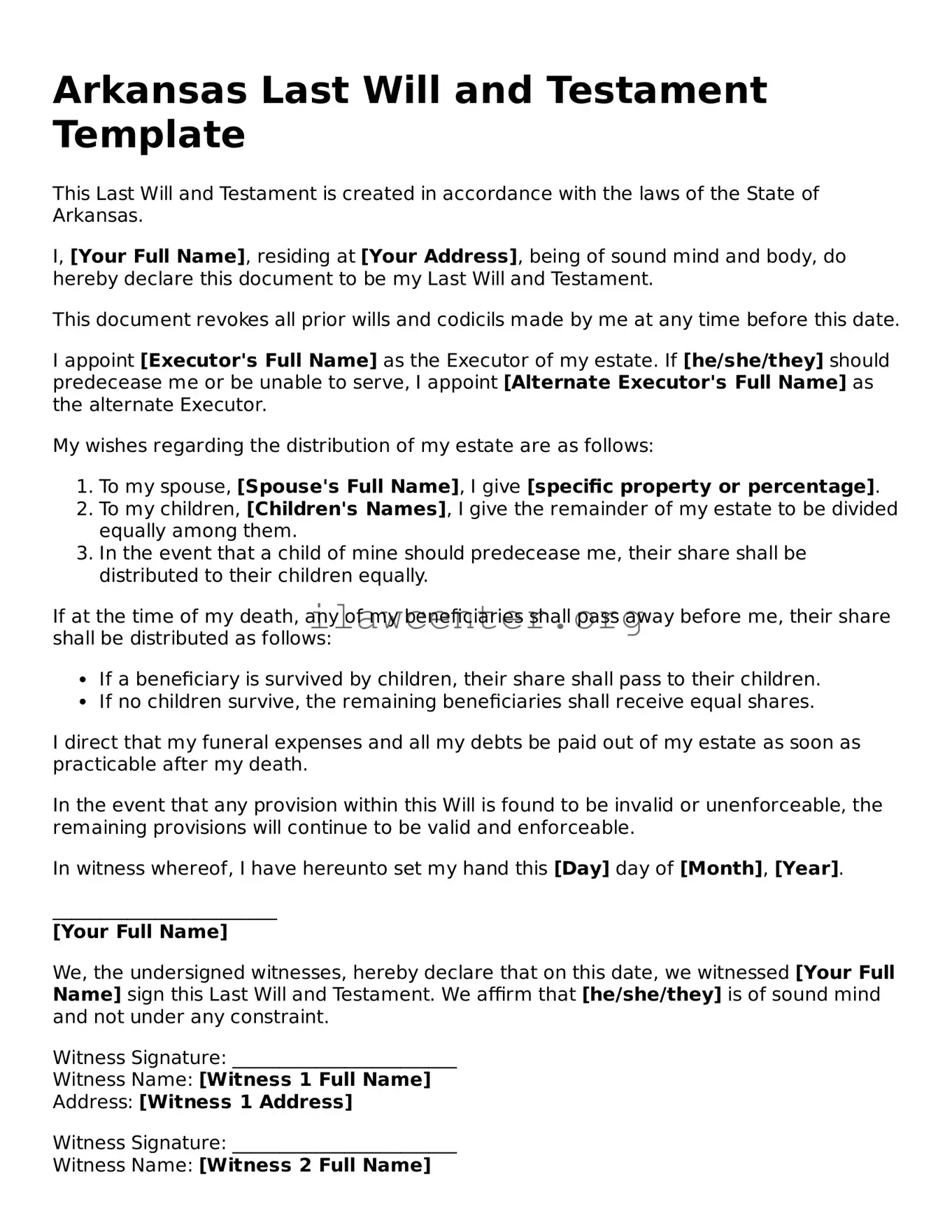What is a Last Will and Testament in Arkansas?
A Last Will and Testament is a legal document that outlines how you want your assets distributed after your death. In Arkansas, this document can also designate guardians for minor children and specify your final wishes regarding funeral arrangements. Having a will offers clarity and direction for your loved ones during a difficult time.
Who can create a Last Will and Testament in Arkansas?
Any individual who is at least 18 years old and of sound mind can create a Last Will and Testament in Arkansas. You must be capable of understanding the implications of your decisions and the nature of your assets. If you meet these criteria, you have the right to formulate your will, ensuring your wishes will be honored after your passing.
Do I need a lawyer to create a Last Will and Testament in Arkansas?
While it is not legally required to hire a lawyer to create a will in Arkansas, doing so can be beneficial. An attorney can help ensure that your will complies with Arkansas laws and can provide valuable advice regarding complex situations. If your estate is relatively simple and you feel comfortable, you may also use online templates or resources.
What are the requirements for a Last Will and Testament in Arkansas?
In Arkansas, for a will to be considered valid, it must be written, signed by the testator (the person making the will), and witnessed by two individuals. These witnesses must be at least 18 years old and cannot be beneficiaries of the will. It's crucial to follow these requirements closely to prevent challenges to the will’s validity in the future.
Can I change or revoke my Last Will and Testament?
Yes, you have the right to change or revoke your Last Will and Testament at any time while you are alive. To modify the document, you can create a new will or a codicil, which is an amendment to your existing will. Revocation can be accomplished by physically destroying the old will or creating a new will that states your intention to revoke the previous one.
What happens if I die without a will in Arkansas?
If you pass away without a will, your estate will be distributed according to Arkansas intestacy laws. This means your assets will be divided among your closest relatives, which may not align with your personal wishes. Additionally, the court will appoint an administrator to handle your estate, which may lead to delays and additional costs for your family.
How do I ensure my Last Will and Testament is properly executed?
To properly execute your will, follow these steps: ensure it is in writing, signed by you, and witnessed by two individuals who are not beneficiaries. Store the document in a safe yet accessible location, and consider informing your loved ones about its existence and location. Additionally, reviewing your will periodically can help ensure it reflects your current wishes.
Is it necessary to probate a Last Will and Testament in Arkansas?
In most cases, probate is necessary to validate a will and facilitate the distribution of your assets in Arkansas. The probate process provides a legal framework to settle debts, distribute property, and resolve any disputes. However, certain assets, such as jointly owned properties or those with designated beneficiaries, may not require probate. Consulting with a legal professional can clarify your specific situation.
